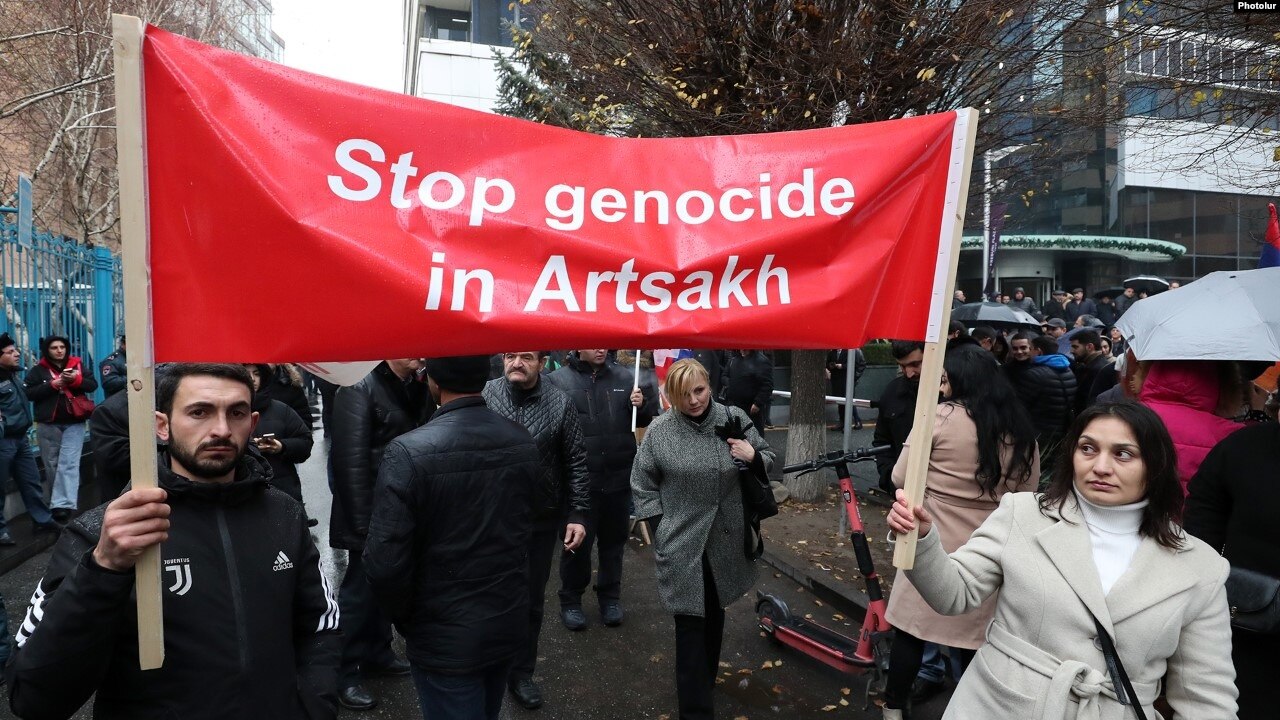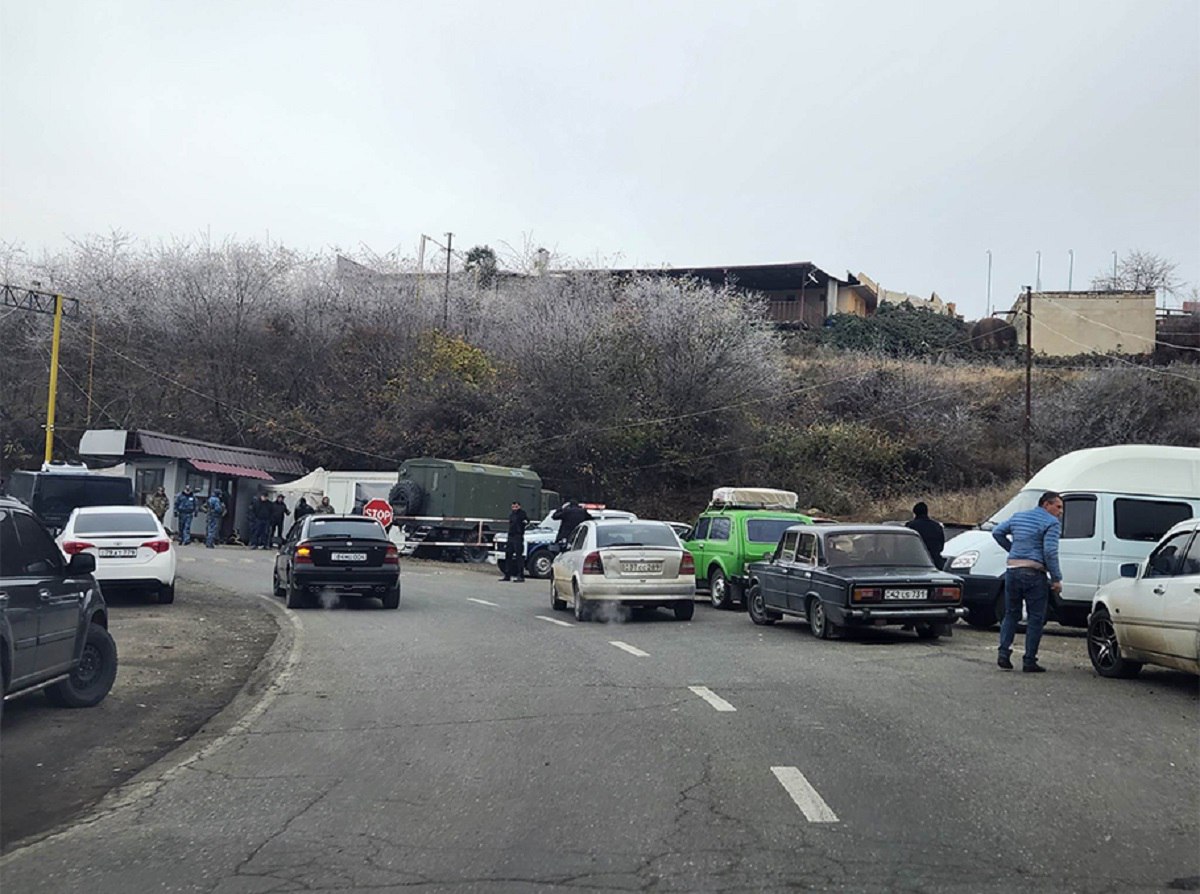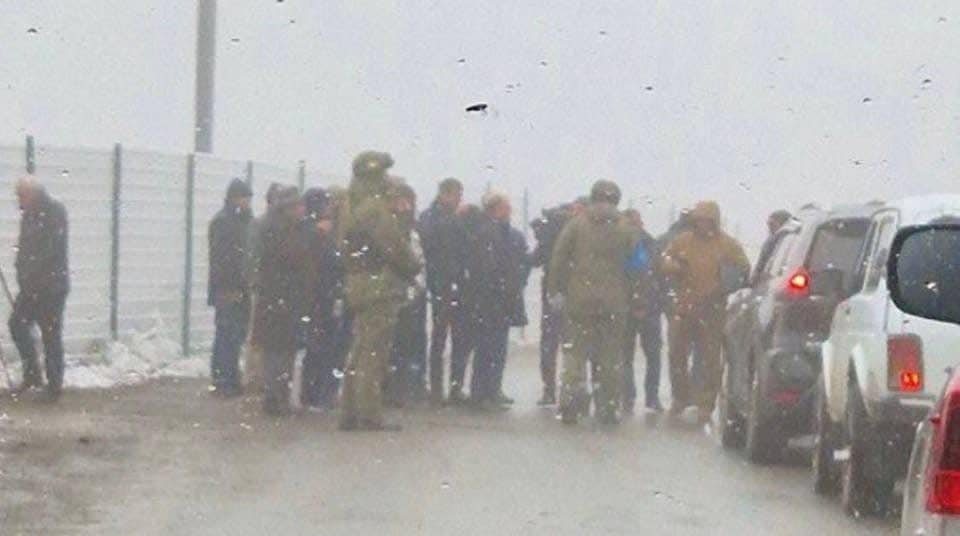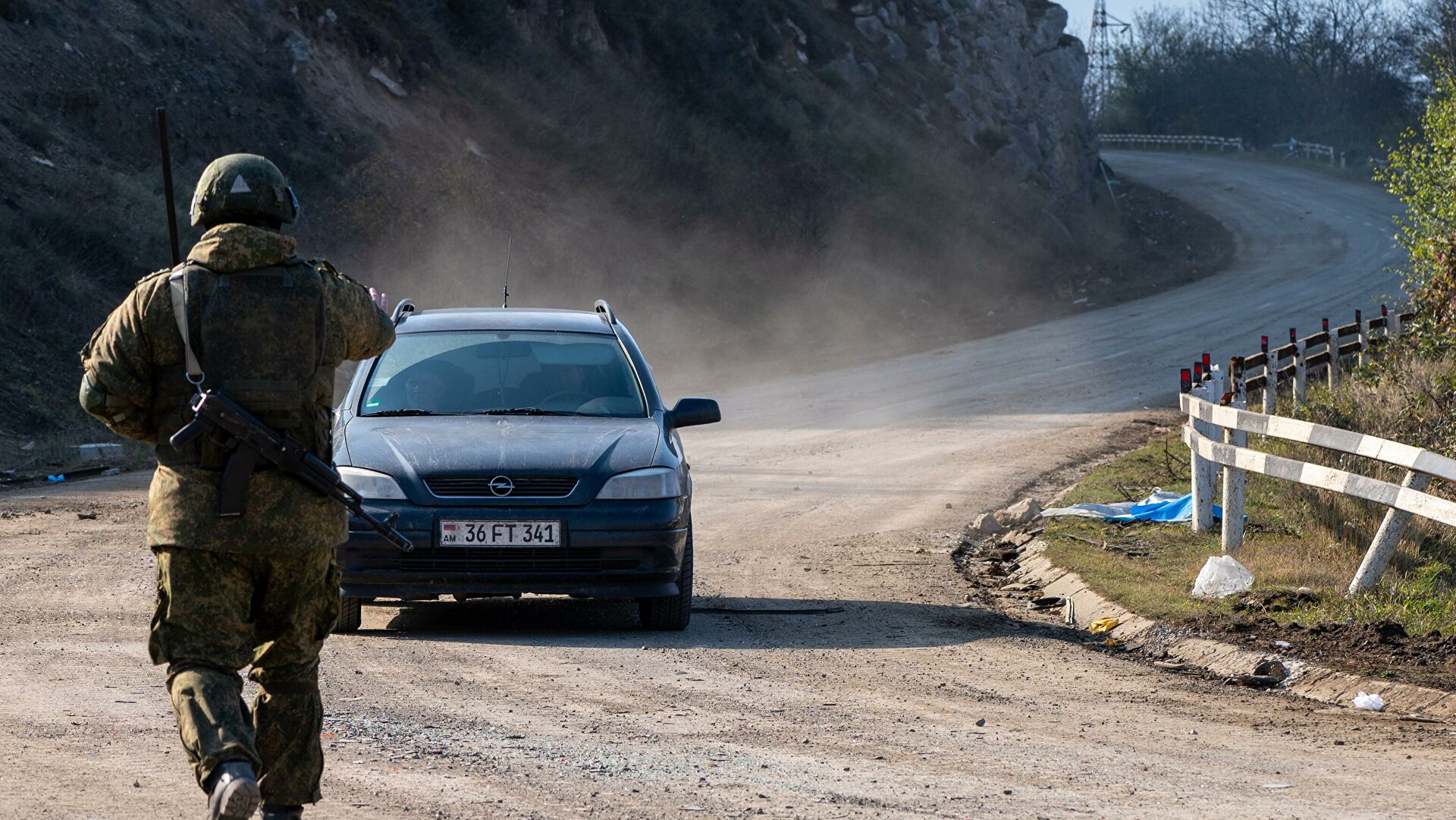"Baku trying to legitimize 'new regime' in the Lachin corridor." Opinion from Yerevan
Commentary on closure of Lachin corridor
“There is no military component, but these actions are military in nature. The people of Artsakh are cut off from the rest of the world, they are under blockade, in a situation of humanitarian crisis,” political observer Hakob Badalyan says of the blocking of the Lachin corridor by Azerbaijan.
He believes that Aliyev took this step because he considered the moment convenient and is now trying to make the most of the situation. According to Badalyan, the Armenian authorities should work with both Russia and the Western to resolve the issue.
- Gas supply restored, road still blocked: situation in NK
- “The silence of friendly countries seems strange” – Pashinyan on situation in Lachin
- “Armenians of NK have been held hostage for the third day” – statement of the Armenian Parliament
For the eighth day now, successive groups of Azerbaijanis have blocked the Lachin corridor, the only road connecting Nagorno-Karabakh with Armenia. 120,000 Armenians are under blockade, on the verge of a humanitarian catastrophe. It is reported that food and medicine will last only a few days.
The local clinic has patients in serious and extremely serious condition, including children. On December 19, thanks to the intervention of the Red Cross, a patient who needed heart surgery was taken out by ambulance and brought to Yerevan.
In order to “ensure the normal life of the population of Artsakh and prevent possible threats,” NK declared a working regime of martial law.
“Baku dictates its agenda and conducts bidding”
According to Hakob Badalyan, Azerbaijan’s main goal is to take a dominant position in NK both in terms of the political agenda and direct influence. Baku is using every opportunity to dictate its own agenda and conduct “beneficial trades” with various major players.
The analyst believes that the Azerbaijani president considered it “fertile ground” for this step and is now trying to make the most of the situation, whether it be mines, the political agenda in general, or forcing Armenia to make concessions. We are talking here, in particular, about providing Azerbaijan with the so-called “Zangezur corridor” through Armenia, which Pashinyan and his team categorically refuse.
The Armenian authorities explain that there is no such clause in the statement, according to which the parties committed themselves to unblocking regional communications. In addition, the term “corridor” means the loss of control by Armenia in this territory. In this regard, the Prime Minister of Armenia has repeatedly spoken about his readiness to provide other ways with the preservation of the country’s sovereignty on them, to which Azerbaijan does not agree.
“We see calls for Azerbaijan to open the Lachin corridor, but in practice they remain unanswered or without consequences. At the same time, we do not see any initiatives to hold Azerbaijan accountable. This shows that Baku is taking advantage of a favorable situation.”
According to the expert, the mines are just a reason for closing the Lachin corridor, and not the main reason. He says that the political nature of this step and the explanation given are disproportionate. And if we consider the issue of mines as a reason, then this will mean that the issue does not concern Baku, but “is at the level of interests and ambitions of other players.”
“Azerbaijan is trying to turn the corridor into a humanitarian channel”
Badalyan says that opening the road specifically for humanitarian cargo is a method for solving humanitarian problems, and in this way Azerbaijan is trying to show that the action is not “causing a humanitarian crisis.” Relieving itself of this responsibility, Baku is also trying to establish “Azerbaijani control, at least indirectly” in the Lachin corridor:
“That is, the corridor does not function fully, but as a humanitarian channel. This may be one of the goals of Azerbaijan: to achieve a change in perceptions and the regime around the corridor, to gradually fix this in the form of political agreements, to create a precedent.”
He believes that in order to avoid a humanitarian catastrophe this humanitarian channel must operate, but “political perceptions that the corridor is closed, but the humanitarian channel is working” must not be allowed.
“We need to be careful. There is, at a minimum, the problem of providing humanitarian communications, but there is also the problem of this political trap where they legitimize the “new regime” in the Lachin corridor in this way,” Badalyan warns.
He considers this situation a challenge that Armenia should take into account “when considering issues of the humanitarian channel.”
“Opening the corridor and changing the status quo”
According to the expert, the resolution of the situation with the Lachin corridor implies a certain change in the situation as a whole, a change in the status quo. He says: how, when, under what conditions, under what status quo the Lachin corridor will be opened, depends on extensive political discussions. In addition to Armenia, NK and Azerbaijan, “participants in the big geopolitical game” are also involved in them:
“We see the presence of such interest and a large scale. And this is evidenced, for example, by the visit of the head of British intelligence to Armenia.”
“The air route cannot replace the ground route”
Commenting on discussions on the opening of an air corridor for transport between NK and Armenia, Badalyan recalls that Azerbaijan has long threatened all the prospects for the operation of the local airport:
“Or there must be Azerbaijan’s consent, which in itself can be a trap and legitimize the blocking of the Lachin corridor. In addition, it is clear that no air route can replace a full-fledged ground route.”
Another possibility is coercing Azerbaijan. However, in this case, according to Badalyan, the question arises: “If they can force Azerbaijan, then why can’t they simply force it to open the Lachin corridor?”
“Intermediaries will be tested”
According to Badalyan, Armenia should focus on the tripartite statement of November 9, 2020, which “clearly states that Azerbaijan has no business and no authority in the Lachin corridor; this is the area of responsibility of Russian peacekeepers.”
Badalyan believes that responsibility should be placed on both Baku and Moscow, as well as on Western nations, so that they cannot afford the “luxury of blaming everything on Russia”, and talked about obligations for peace and conflict resolution.
“If any major actor undertakes to contribute to peace, then right now there is an opportunity, so to speak, to pass the test, namely to hold Azerbaijan accountable for the humanitarian problems it has caused and the violation of the November 9 document.”
According to him, Armenia can’t speak from a position of strength, so the only way is to conduct a dialogue with the Russians or other mediators “in order to prevent the legitimization of Baku’s blackmail.”
Commentary on the closure of the Lachin corridor






















